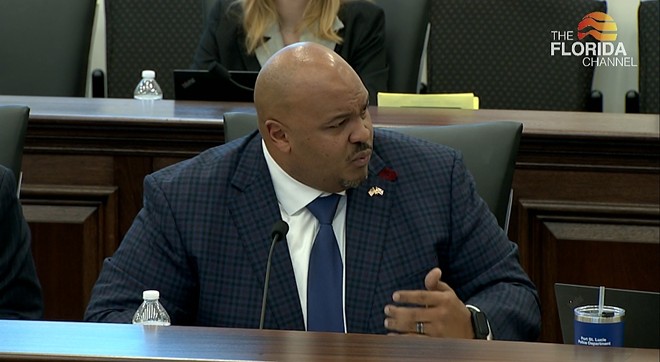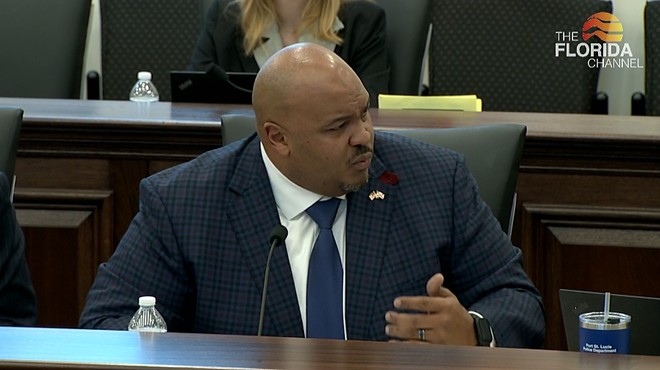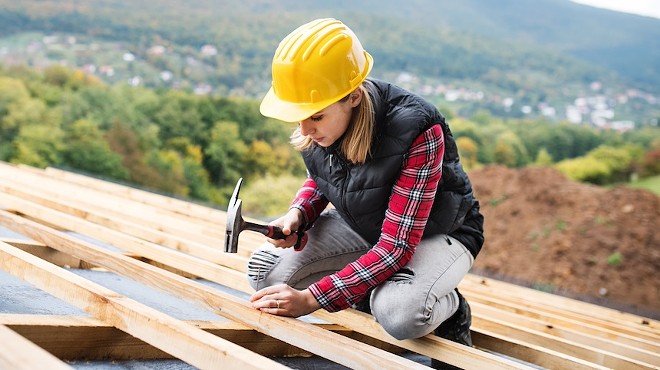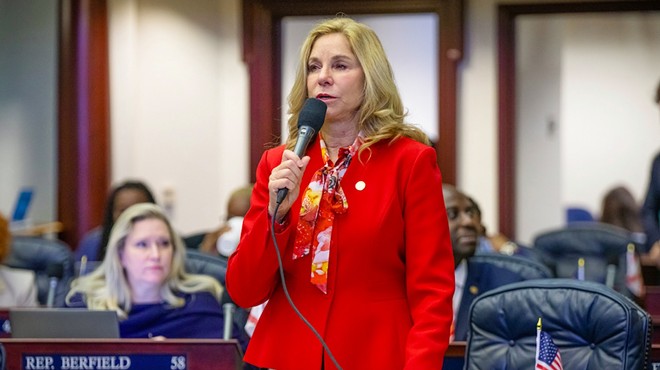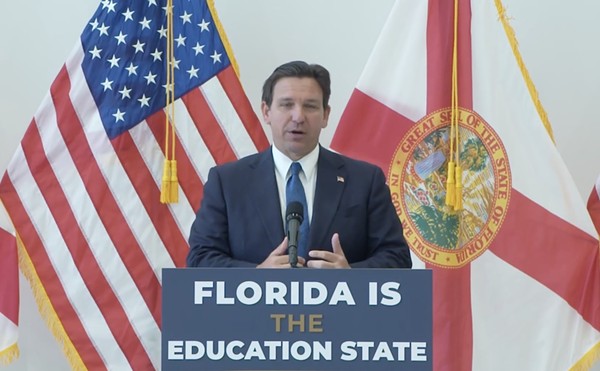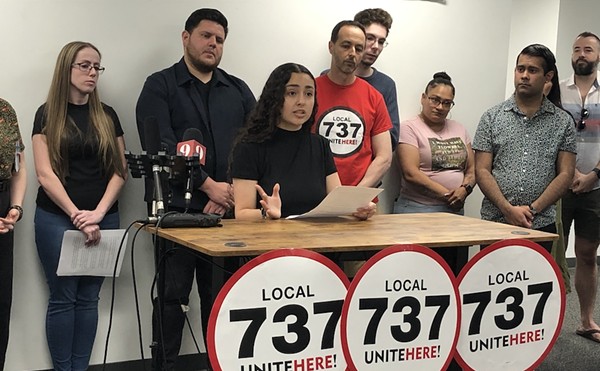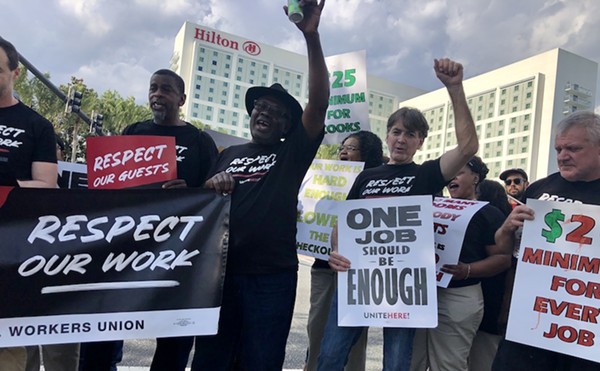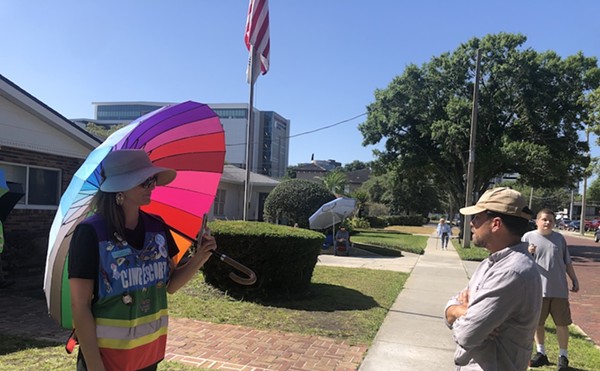While Democrats still don’t agree with Republicans on abortion rights or rights for transgender Floridians, state lawmakers appear to have found common ground on conceding to deep-pocketed industry groups that want to help employers in the construction industry fill labor shortages.
Senate Bill 460, sponsored by first-term Sen. Corey Simon, would amend Florida law to explicitly allow 16- and 17-year-olds to work jobs on residential construction sites that are currently prohibited for minors due to health and safety concerns.
Currently, minors are only allowed to be employed in what the government defines as “hazardous” jobs if they are doing so as part of a federally approved apprentice or student learner program, which are subject to strict regulations and supervisory requirements. Federal law also prohibits minors from working "on or about a roof," although office or sales work for construction companies is permissible.
The Republican senator's proposal, reflecting a trend of similar proposals across the country, is folded into a broader bill written by lobbyists for the construction and home builders industries that would otherwise enhance career and technical education opportunities in Florida’s public school system (something no one is opposed to).
Since the bill was first filed in November, Simon has amended the legislation several times, after facing public pressure, specifically to clarify that minors would not be able to work on roofs, scaffolding or superstructures more than six feet off the ground, nor work on commercial construction sites.
Simon has also clarified in the bill that no minor would be permitted to work in violation of any federal labor law, including the Fair Labor Standards Act (which sets a federal baseline for child labor standards) or any rules from the Occupational Safety and Health Administration (OSHA).
Other safeguards, such as requiring older teens to first obtain OSHA-10 certification and to work under the supervision of an adult 21 or older who has at least two years’ experience in the industry, are also included in the legislation.
According to the U.S. Bureau of Labor Statistics, however, there is only one direct supervisor on construction and extraction sites in Florida for every seven workers, as it is. Behind agriculture, construction is the deadliest industry for youth, who are more likely to be injured on the job compared to their older counterparts.
Opponents have pointed out that children may also be less likely to speak up if their boss isn’t paying them what they’re owed, or works them overtime without extra pay. This kind of behavior — wage theft — is common in the construction industry, and Florida has no meaningful mechanism for combating it.
Florida Sen. Tracie Davis, a Democrat, pleaded with Sen. Simon on Thursday to better explain how safe and prudent his legislation really is, as Davis continues to hear concerns from labor and social advocacy groups in opposition to it.
“I just want the sponsor of the bill to stress how we are not talking about a 16- or 17-year-old going up on a roof [anymore],” said Davis. “Enforcement is very important.”
Davis has a point. Enforcement of child labor law is, in fact, important. And there’s very little capacity for it in this state already.
According to the Department of Business and Professional Regulations, there are just seven state personnel dedicated to enforcing Florida’s child labor law across the state, tasked with covering thousands of businesses.
Both the U.S. Department of Labor’s Wage and Hour Division and OSHA can also investigate alleged violations of regulations on hazardous work and child labor. But enforcement personnel from those agencies are also in limited supply. There were just about 75 OSHA employees tasked with monitoring Florida businesses as of 2021, and the WHD division has said it is operating with “historically low staffing levels.” The latter has been flat-funded by U.S. Congress for years.
Florida relies on federal OSHA regulators to conduct workplace inspections and investigate complaints, and has done so since state lawmakers and then-Gov. Jeb Bush abolished the state Department of Labor and Economic Security in 2002.
Dr. Rich Templin, lobbyist for the Florida AFL-CIO, told state lawmakers on Thursday, “There’s so few OSHA investigators in the state of Florida, it would take hundreds of years to investigate all job sites.” The AFL-CIO estimated in 2022 that, with the agency’s current staffing levels, it would take OSHA over 200 years to conduct inspections at the millions of workplaces under its jurisdiction even once.
Theresa King, president of the Florida Building and Construction Trades Council, told lawmakers that although her organization supports the idea of drawing more young people into the construction industry, enforcement of safety standards for youth remains a concern. “We would like to see a few more safety provisions in the bill,” said King. “I'm a construction worker, and I know how it is out there.”
Construction happens to be one of the most common industries in which child labor violations occur, according to the U.S. Department of Labor, and failing to follow the law can have devastating, long-term consequences for youth.
At best, when safety guidelines aren’t followed, a child may be injured on the job. At worst, they may suffer a permanent, debilitating injury or even die in the interest of learning a new trade or supporting their family’s ability to eat or pay rent.
Sen. Keith Perry, who owns a roofing company in Alachua County, conceded that there are already employers who violate federal labor law (he would know), but argued that this bill won’t change that in any meaningful way.
“I started roofing when I was 16 years old. I started my business when I was 17 years old — which was illegal, is still illegal, and will be illegal under this bill,” said Perry, in his own interesting way of defending the legislation. “People who break the law are not going to follow the law anyway, whether this bill is passed or not.”
“People who break the law are not going to follow the law anyway, whether this bill is passed or not.”
tweet this
The bill’s primary cheerleaders — including the Florida Home Builders Association and Associated Builders and Contractors — argue that the bill will help fill gaps in Florida’s school system, which doesn’t offer construction courses for teens (in a safe environment) in all Florida counties. Supporters also point to current and looming labor shortages in the industry as more older workers retire to emphasize the need for drawing more young people into the trades.
“More than 50% of the industry is 50 years of age or older and retiring, and we are just uniformly working to expose students in school to career and technical education opportunities,” said Carol Bowen, lobbyist for the ABC of Florida, during a committee hearing for the House version of the bill, HB 917.
Sen. Simon, who was fed draft language for the Senate bill by Bowen in October, has defended his legislation by gaslighting the bill’s critics, arguing that they are unnecessarily causing “confusion” that “doesn’t help our kids.”
“These are young people that are looking for an opportunity, and looking to find an interest that they can turn into a really successful career,” Simon said in closing.
Sen. Shevrin Jones, the only other Democrat on the Senate panel with Davis, voted with his colleagues in favor of moving the legislation forward without comment. The bill has also (tellingly) garnered the support of Americans for Prosperity, aka the “union-hating Koch brothers’ lobbying arm.”
The House version of the bill, HB 917, has similarly cleared its first two committees with support from some Democrats. The legislation would need support from both the full House and Senate in order to pass.
Meanwhile, the Republican-dominated legislature is also trying to extend the number of hours older teens can work, make it even harder for adults to access unemployment benefits, and prohibit local governments from requiring their contractors to provide cooling measures like water and shade to employees who work outdoors.
Follow us: Apple News | Google News | NewsBreak | Reddit | Instagram | Facebook | Twitter | or sign up for our RSS Feed

